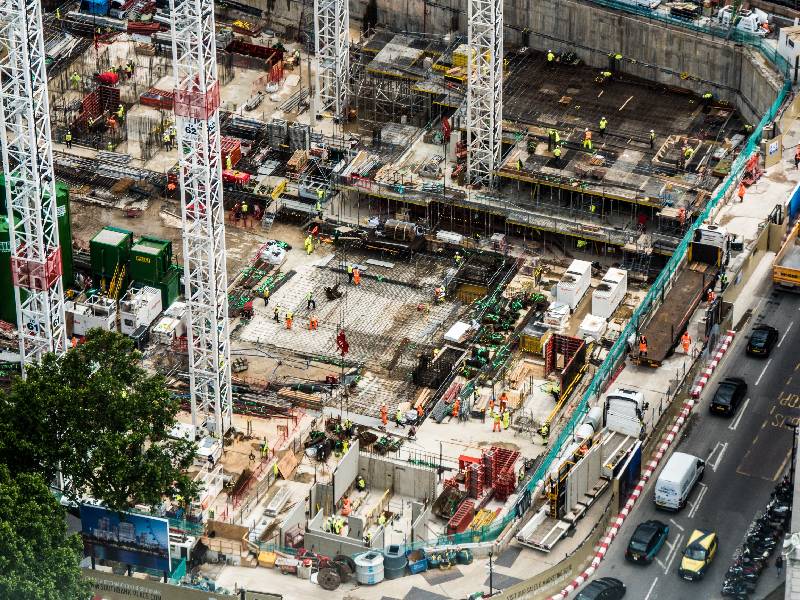A Day in the Life of a Crane Operator – 8 Aspects

Crane operators play a vital role in the construction industry, responsible for safely and efficiently lifting and moving heavy loads. Their job requires a high level of skill and experience, as well as the ability to work under pressure and in challenging conditions.
If you’re interested in learning more about what it’s like to be a crane operator, this article will take you through a typical day in their life.
1. Pre-Shift Inspection:
The first thing a crane operator does before starting their shift is to conduct a pre-shift inspection of their crane. This involves checking all of the crane’s components for any signs of wear or damage. The operator will also check the crane’s load charts and make sure that the crane is properly calibrated.
2. Set up:
Once the crane has been inspected, the operator will set it up in the desired location. This may involve attaching the crane to a foundation or building, or positioning it on a crane pad. The operator will also need to set up the crane’s load lines and hooks.
3. Lift and Move Loads:
The primary responsibility of a crane operator is to lift and move heavy loads. This can involve anything from moving construction materials to lifting and placing prefabricated sections of a building. Crane operators use their skills and experience to safely and efficiently move loads of all sizes and weights.
4. Communication:
Crane operators must be able to communicate effectively with other workers on the job site. This is especially important when lifting and moving heavy loads, as crane operators need to be able to coordinate their movements with other workers to ensure safety.
5. Problem-Solving:
Crane operators often need to solve problems on the job site. This may involve figuring out how to lift and move a load in a tight space, or dealing with unexpected weather conditions. Crane operators need to be able to think critically and come up with solutions to problems on the fly.
6. Teamwork:
Crane operators often work as part of a team. This may involve working with other crane operators, signal persons, and other construction workers. Crane operators need to be able to work effectively with others to complete tasks safely and efficiently.
7. Safety:
Safety is the top priority for crane operators. They need to be constantly aware of their surroundings and take precautions to avoid accidents. Crane operators also need to be familiar with all of the safety regulations that apply to their job.
8. End-of-Shift Inspection:
At the end of their shift, crane operators will conduct a post-shift inspection of their crane. This is similar to the pre-shift inspection, but it is important to check the crane for any damage that may have occurred during the shift.
Challenges of Being a Crane Operator:
Being a crane operator is a challenging but rewarding job. Some of the biggest challenges that crane operators face include:
- Working in all types of weather conditions: Crane operators often need to work in extreme weather conditions, such as hot summers and cold winters. They also need to be able to work in rain, snow, and wind.
- Working under pressure: Crane operators often need to work under pressure, especially when lifting and moving heavy loads. They need to be able to stay calm and focused in stressful situations.
- Operating heavy machinery: Crane operators operate heavy machinery, which can be dangerous if not used properly. They need to be trained and certified in crane operation.
How to Become a Certified Crane Operator in Phoenix:
If you’re interested in becoming a certified crane operator in Phoenix, there are a few steps you need to take. First, you need to find a crane operator training program. There are several programs available in the Phoenix area.
Once you have completed a training program, you need to pass a certification exam. The certification exam is administered by the National Commission for the Certification of Crane Operators (NCCCO).
Once you have passed the certification exam, you will be certified to operate cranes in the state of Arizona.
Conclusion:
Being a crane operator is a challenging but rewarding job. Crane operators play a vital role in the construction industry, and they are in high demand. If you’re interested in becoming a crane operator, there are several training programs available in the Phoenix area.
Crane Inspection in Arizona:
Crane inspections are required by law in Arizona. All cranes must be inspected annually by a qualified inspector. The inspector will check the crane for any signs of wear or damage. The inspector will also check the crane’s load charts and make sure that the crane is properly calibrated.
If you are a crane operator in Phoenix, it is important to make sure that your crane is inspected annually by a qualified inspector. This will help to ensure the safety of yourself and others on the job site.